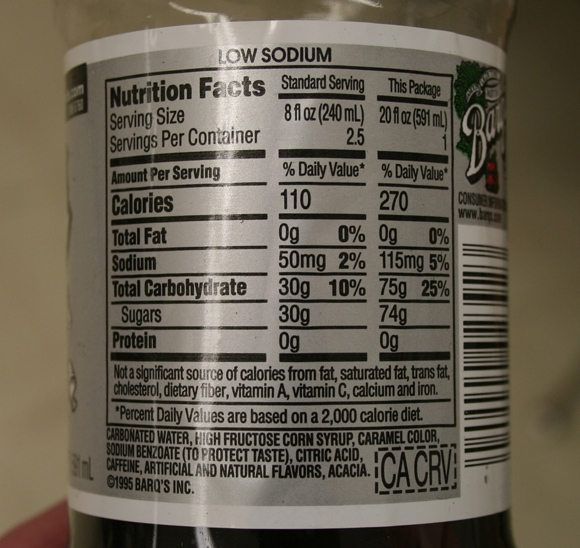
Tonicity is the amount of solute (ions and other molecules) in a solution. Hypertonic solutions are those that contain more solute than another solution that is being compared. Hypotonic solutions are those that contain less solute than another solution being compared. A hypotonic solution contains more water (because it has less solute) than a hypertonic solution (which has more solute). Isotonic solutions are those solutions that have equal amounts of total solute, and thus equal amounts of water.
For a drink to effectively get water into the bloodstream, the drink must be more hypotonic than the bodies' cells. Seawater is a very poor drink for people because it is much more hypertonic than the cells in the body. Since the body cells are hypotonic, water flows by osmosis from the blood into the digestive system in an attempt to reach an equilibrium with the salt water there. Repeated drinks of salt water thus dehydrate the body.
Objective: Determining which common drinks might be hyper- or hypo- tonic to each other.
1) Observe labels of 4 of the following drinks. Look at the contents these liquids contain, and in what proportions if possible. Try to estimate which drinks would be hypertonic to the others, or conversely which would be hypotonic to the others.
2) Rank all 4 of them from most hypertonic to most hypotonic.
3) Which drinks would most likely be able to quench a person's thirst (hydrate them fastest)? Which drinks would work the worst?
4) Defend your conclusions. Write a page or more about why you would rank these drinks this way. Give specifics to back up your conclusions.
[Ocean Spray Cranberry Juice] [Minute Maid Orange Juice] [Refreshe Bottled Water] [Orange Gatorade] [Hawaiian Punch] [Squirt] [Classic Coke] [Raspberry-flavored Diet Snapple]
1) Consult one of your coaches or a health teacher to determine what they believe about the use of sports drinks (Propel, Gatorade, etc.....). In other words, are such drinks useful for quickly replacing water lost during exercise or work? Why do they have that opinion? Do they have any suggestions of what might work best to replace water lost by exercise?(Don't worry about replacing ions, sugars etc lost by exercise for this assignment!)
2) Bring a bottle of a sports drink, or any drink you commonly use to rehydrate yourself with to the next class. Talk with your lab partners so you don't bring the same drink! We will be performing a scientific test to determine which drinks work best to rehydrate the body next week!